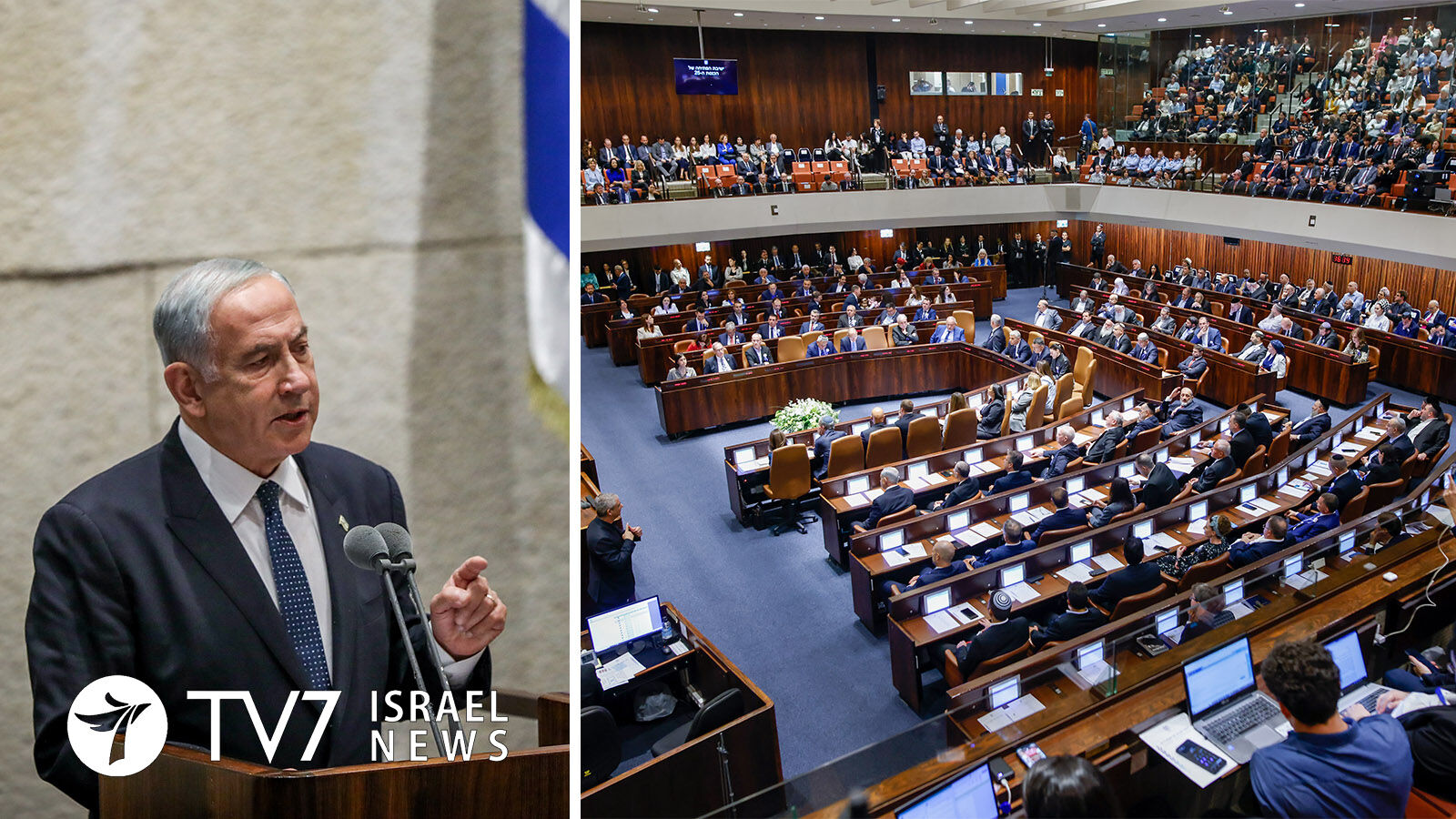Lawmakers were sworn into office in a festive ceremony.
By Erin Viner
The new term began with an honor guard and a visit by President Isaac Herzog .
23 new members of Knesset (MKs) joined veteran politicians in the parliament.
The inauguration follows a decisive win by presumed incoming Prime Minister Benjamin Netanyahu, who is currently engaged in forming the new cabinet.
The Likud leader was officially tasked by President Herzog on Sunday to begin the formation of Israel’s 37th government, after the former premier received the most recommendations from like-minded parties to secure 64 of parliament’s 120 seats.
The conservative, rightwing Likud leader is now on the path to one of the most stable governments in years, after being out of office only 18-months. He was replaced by a diverse but fragile alliance of centrist, liberal, nationalist and Arab politicians following last year’s 23 March 2021 national elections.
Netanyahu has 28 days to clinch a coalition, with a possible 14-day extension.
The former premier looks likely to finalize the talks this week, having launched them semi-formally right after the 1 November polls.
Netanyahu has already made the history books as the longest-serving prime minister in Israeli history. He was also the youngest-ever elected premier upon his first election in 1996, the first to have been born in Jewish State since its establishment and served the longest consecutive terms in office.
When asked about his career milestone at the time, Netanyahu modestly replied, “Who’s counting?”
After spending over 13 years at the political helm, Netanyahu surpassed the longevity title set by Israel’s founding father David Ben Gurion. Much like the nation’s first leader, Netanyahu has doubled as Defense Minister and bolstered the military amid ongoing tension with neighboring states and a doctrine of self-reliance. Long hailed by his voter base as “Mr. Security,” Netanyahu has often said he would like to be remembered as the “Protector of Israel.”
The United States-educated premier first entered politics after his brother, Yonatan, was killed while leading the 1976 raid to rescue hijacked Israeli hostages from Entebbe, Uganda. His first high-profile position was as Israeli ambassador to the United Nations in 1984, followed by election to the Knesset with the right-wing Likud party in 1988 after which he was appointed Deputy Foreign Minister.
Netanyahu beat Shimon Peres to take on his first stint as premier, which ended in 1999 after suffering defeat by Ehud Barak in the polls. During his subsequent years in the opposition, Netanyahu filled the posts of Foreign and Finance Ministers under Ariel Sharon but resigned after Israel’s unilateral withdrawal from Gaza in 2005. He then went on to win three consecutive elections – in 2009, 2013 and 2015.
Unquestionably the most dominant Israeli politician of his generation, the 73-year-old former combat veteran is seeking to break yet another record by securing an unprecedented sixth term in office following this month’s elections.
After decades of experience afforded Netanyahu an international stature unrivalled by his Israeli political competitors, he is one of the few world leaders who can boast a rapport with both Russian President Vladimir Putin as well as former US President Donald Trump. With support from the latter, Netanyahu was able to attain major statecraft goals of: Washington’s recognition of Jerusalem as Israel’s capital and of Israeli sovereignty over the Golan Heights, as well as the White House withdrawal from the world powers’ 2015 nuclear deal with Israel’s arch regional foe Iran and the severance of aid to the Palestinian Authority over its refusal to resume peace talks that collapsed in 2014.
Despite those many accomplishments, the Likud leader and prominent world statesman was unexpectedly unable to form a new coalition government after claiming victory in last year’s parliamentary elections, after which he served as Opposition Leader.
